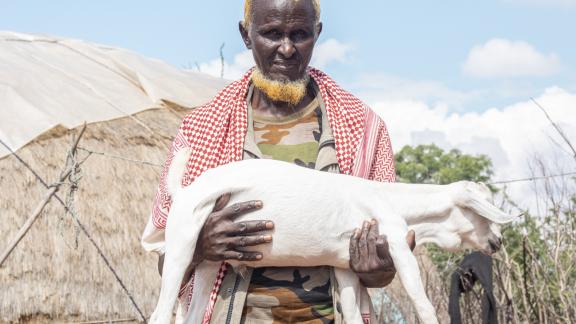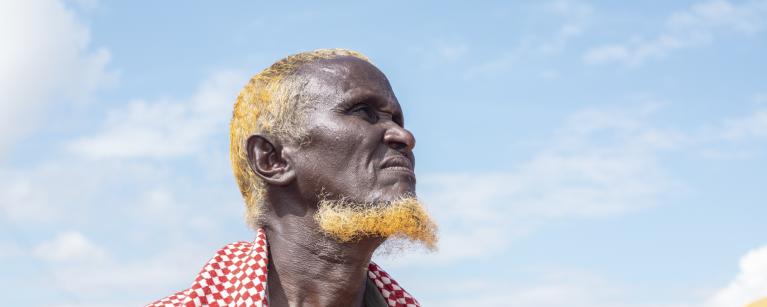“After the drought, we lost everything and could barely sustain two meals a day. We used to have no choice and variety on what to cook. But, after receiving the money, we can now afford 3 meals a day and are able to even help our neighbours who have been in worse situations than we have.”
Prolonged drought in Kenya is affecting the livelihoods of communities leading to severe humanitarian needs. Millions have been reduced to relying solely on savings and their animals for food, money and milk.
The livestock are also now suffering from lack of pasture and water putting more pressure on families as they struggle to cope with the drought.
Hamud Mohamed from Tulatula Village in Wajir County is a father of seven children. Before the drought, life was good for Hamud and his family. He had livestock –goats and sheep. But then everything changed when the drought came, Hamud lost all his livestock due to the lack of water and pasture.
“After the drought, we lost everything and could barely sustain two meals a day. We used to have no choice and variety on what to cook. But, after receiving the money, we can now afford 3 meals a day and are able to even help our neighbours who have been in worse situations. "
Hamud is among hundreds of drought-affected families receiving cash assistance supported by Oxfam and Wajir South Development Association (WASDA). Through the cash transfer, he has been able to receive KES 9,876 (USD 85) every month. This has allowed him to provide food for his family and buy some livestock to replenish what he had lost.

Oxfam in partnership with WASDA under the Arid and Semi- Arid Lands (ASAL) Humanitarian Network is implementing an unconditional cash transfer project in parts of Wajir County to help communities mitigate the effects of the prolonged drought experienced in the region.
“We only hope that they can continue providing us with the money because it is definitely going a long way in ensuring we have food and necessities for survival.” As the planet continues to heat up, the future is extremely challenging for the people of Wajir. While global efforts on tackling climate change are focusing on keeping temperature rises to 1.5 degrees by 2030. Countries like Kenya have done little to contribute to the global problem of climate breakdown, yet are already experiencing these impacts. As drought, floods and other disasters hit with increasing frequency, Oxfam and partners continues to work in the countries most affected by this global problem.
For communities in Kenya, climate change is not some distant threat, it is here and now. For these communities, and many more around the world, our governments need to urgently take action and step up our ambition on climate change.
